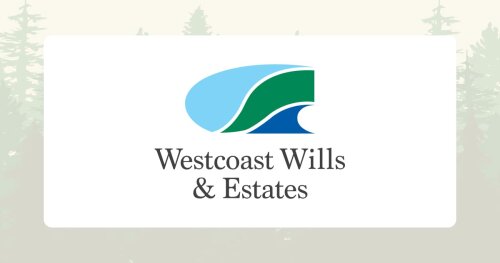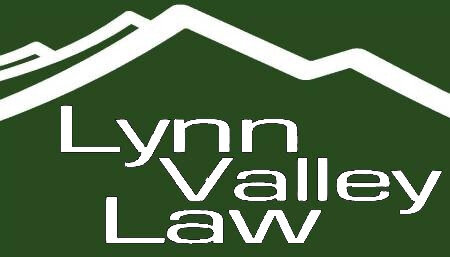Best Elder Abuse Law Lawyers in North Vancouver
Share your needs with us, get contacted by law firms.
Free. Takes 2 min.
List of the best lawyers in North Vancouver, Canada
About Elder Abuse Law in North Vancouver, Canada
Elder abuse law in North Vancouver, part of the broader Canadian legal framework, addresses the rights and protection of older adults from physical, emotional, financial, or sexual abuse, as well as neglect. These laws are designed to safeguard the elderly, ensuring their dignity, autonomy, and well-being are preserved. The legal framework encompasses various acts, including the Adult Guardianship Act, which provides for the protection of incapable adults, and the Criminal Code of Canada, which includes provisions for offenses related to elder abuse. Local policies often involve collaborative efforts between health services, social services, and law enforcement to address and prevent elder abuse.
Why You May Need a Lawyer
There are several situations where you may require legal assistance concerning elder abuse law. These can include suspicion of physical abuse, situations involving the mismanagement of an elderly person's finances, or disputes surrounding guardianship and power of attorney. Legal advice is essential if you need to report abuse, seek a protective order, or require guidance on navigating healthcare and consent issues. An experienced lawyer can advocate for the rights of older adults, ensuring their voices are heard and their interests safeguarded in legal proceedings.
Local Laws Overview
In North Vancouver, elder abuse law intersects with both provincial and federal legislation. Key aspects include:
- Adult Guardianship Act: This act provides measures for the protection of adults who are unable to protect themselves from abuse, neglect, or self-neglect. It includes provisions for hospital and health authority staff to intervene in instances of apparent abuse.
- Criminal Code of Canada: Offenses related to elder abuse could involve assault, theft, fraud, or neglect towards an elder, which are punishable under federal law.
- Health Care (Consent) and Care Facility (Admission) Act: This act addresses issues related to informed consent, particularly for adults who may not be capable of making decisions independently.
- Community Collaborations: Local laws encourage collaboration between different sectors to provide a comprehensive safety net for elders, incorporating social services, healthcare providers, and law enforcement.
Frequently Asked Questions
1. What constitutes elder abuse?
Elder abuse is any action, or lack of action, that causes harm or distress to an older person. It includes physical, emotional, financial, and sexual abuse, as well as neglect.
2. How do I report elder abuse in North Vancouver?
You can report elder abuse to local authorities, such as the police or social services. In emergencies, calling 911 is advised. The Public Guardian and Trustee of BC can also be a point of contact for non-emergencies.
3. What are the signs of elder abuse?
Signs may include unexplained injuries, anxiety, depression, withdrawal from social activities, sudden financial difficulties, poor hygiene, and untreated medical problems.
4. Can elder abuse happen in nursing homes?
Yes, elder abuse can occur in institutional settings like nursing homes. Complaints can be filed with licensing bodies and health authorities if abuse is suspected in these environments.
5. Who can be considered an elder abuser?
An abuser could be a caregiver, family member, friend, healthcare provider, or any person in a position of trust or authority over the elder.
6. What should I do if I suspect financial abuse of an elder?
Document any suspicious activities, speak with other trusted family members or friends, and consult a lawyer or the Public Guardian and Trustee for advice and intervention options.
7. How can a lawyer help in cases of elder abuse?
A lawyer can offer legal advice, represent the elder in court, help draft necessary legal documents, and work to ensure their protection and recovery of any lost assets.
8. Are there specific laws that protect elders in their own homes?
Yes, laws such as the Adult Guardianship Act apply to any setting, including private homes, ensuring protections and interventions can be made if abuse is suspected.
9. Can elders sign legal documents if they are being abused?
The capacity to sign documents depends on the individual's mental state. However, if there is coercion or manipulation, those documents can be challenged and deemed invalid.
10. What role does the Public Guardian and Trustee play in elder abuse cases?
The Public Guardian and Trustee protect the legal, financial, and personal interests of persons whose abilities to protect themselves are in question, including investigating financial abuse.
Additional Resources
Here are some resources that can be helpful:
- Public Guardian and Trustee of British Columbia: Provides services to protect the legal and financial interests of vulnerable individuals.
- Seniors First BC: Offers information, support, and legal advice for seniors facing abuse.
- BC Centre for Elder Advocacy and Support: Provides advocacy and support for elders.
- North Shore Community Resources: Offers resources and support through their seniors' programs.
Next Steps
If you or someone you know needs legal assistance regarding elder abuse, the following steps can help:
- Document Evidence: Record any signs or instances of abuse, keeping a detailed log with dates and descriptions.
- Consult a Lawyer: Seek advice from a lawyer specializing in elder law to understand legal rights and options.
- Report the Abuse: Contact local authorities or relevant agencies to report the abuse and initiate protective measures.
- Access Support Services: Reach out to local support organizations for additional guidance and resources.
- Follow Legal Proceedings: With legal help, follow through with necessary court actions to ensure protection and justice for the elder involved.
Lawzana helps you find the best lawyers and law firms in North Vancouver through a curated and pre-screened list of qualified legal professionals. Our platform offers rankings and detailed profiles of attorneys and law firms, allowing you to compare based on practice areas, including Elder Abuse Law, experience, and client feedback.
Each profile includes a description of the firm's areas of practice, client reviews, team members and partners, year of establishment, spoken languages, office locations, contact information, social media presence, and any published articles or resources. Most firms on our platform speak English and are experienced in both local and international legal matters.
Get a quote from top-rated law firms in North Vancouver, Canada — quickly, securely, and without unnecessary hassle.
Disclaimer:
The information provided on this page is for general informational purposes only and does not constitute legal advice. While we strive to ensure the accuracy and relevance of the content, legal information may change over time, and interpretations of the law can vary. You should always consult with a qualified legal professional for advice specific to your situation.
We disclaim all liability for actions taken or not taken based on the content of this page. If you believe any information is incorrect or outdated, please contact us, and we will review and update it where appropriate.










